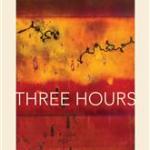David I. Starling
Hermeneutics as Apprenticeship: How the Bible Shapes Our Interpretive Habits and Practices
Grand Rapids: Baker Academic, 2016.
Available from Baker and Koorong
By Laura Thierry
What if learning to read and interpret Scripture well looked less like a classroom and more like a carpenters shop? What if character and virtue were just as significant for the interpretation of Scripture as an excellent Greek and Hebrew exegetical toolbox? What if hermeneutics was actually like learning a trade than gaining a degree? Such are the kinds of questions undergirding David I. Starlings winsome and engaging book, Hermeneutics as Apprenticeship.
Beginning with the clear reorientation to the reality that “Whenever we read Scripture we are interpreting” (1) (that is, that there is no possibility of a “pure” uninterrupted reading), Starling analyzes the plight that this raises for Evangelical Interpreters, that is, those who “approach the task of Bible reading without the direction of an infallible church tradition to govern their interpretive decisions.” Without this, what is the anchor for our interpretation, particularly in light of the “plurality of evangelical interpretations” that increasingly exist? (7).
The answer, from a protestant perspective has often put forward a two-fold understanding of Scripture being its own interpreter: (1) Scripture is passively interpreted by those who actively interpret it by other passages of Scripture, or (2) Scripture, as an active agent, interprets and illuminates “the world of the reader”.
But what if there is also a third way in which “Scripture interprets Scripture”? A “reflexive sense of the maxim [that] appeals to the plural, human authorship of Scripture and speaks of the interpretive work that the biblical authors themselves perform in understanding and appropriating anteceding texts and traditions that functioned for the as Scripture does for us”(11)? This third sense is what Starling goes on to demonstrate. Scripture, according to Starling, doesn’t just function as a circle or a spiral (both helpful images to show us how the Scriptures relate to contemporary readers), rather, as a metaphor of how Scripture functions with regard to itself, the Canon is more like a snowball: “The Bible did not fall from the sky like a single snowflake; it rolled down the hill of salvation history adding layers as it went. Each new layer of the accumulating collection presupposes what comes before and wraps itself around it” (14).
This delightful image, according to Starling, has implications for how we read and interpret the Scriptures, that is, as apprentices to the Biblical writers in their “interpretive practices” and “hermeneutical wisdom” (206). This method requires not just “sweat… [and] skill”, but also “character”, character that will “bring to bear on the task the right dispositions, affections, and virtues.” (17).
Starling works this understanding out in a series of fourteen case studies. In interpreting the Psalms as apprentices to the canonical writers we need to take seriously their hermeneutical practice of interpreting the psalms through the communal practice of singing them, thus forming a “hermeneutics of delight”. The book of Ruth read in this light proves to be an exercise in virtue ethics, and so forth through to the book of Revelation. Starling then concludes with a helpful reminder that this is not a silver bullet curriculum that can be ‘mastered’. Rather it is a life-long apprenticeship of slow and faithful learning and relearning that is ‘richly worth the effort that it requires.” (206).
This book is an excellent resource in bringing to bear the growing interest in practices, virtues, and liturgies in the life of the Evangelical Church to the essential task of Scriptural interpretation. As such it would serve particularly well as a helpful tool to all those involved in teaching people how to read and interpret the Bible faithfully in both academic and local church contexts.
Laura Thierry a PhD student at Ridley College, researching medieval hagiography, Christology, and theology of the body.











